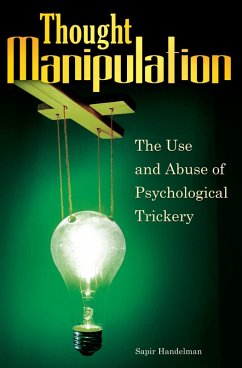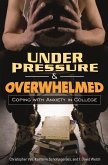This thoroughly intriguing volume explains the many ways our thoughts are manipulated through temptation, distraction, misdirection, and more.
From politics to sales, education, romance, and parenthood, everyone plays-wittingly or not-the roles of manipulator or manipulated. Thought Manipulation: The Use and Abuse of Psychological Trickery offers a thorough understanding of the art of manipulation, leading readers on a fascinating journey into the gray areas of ethics, politics, leadership, advertising, psychotherapy, and intimate relationships.
The book explains how manipulation works, exploring morally questionable tricks, such as temptation, distraction, and misdirection and introducing manipulative strategies, both simple and sophisticated. At the same time, the author allows that manipulation is not always a bad thing as any effective change in decision-making and human behavior cannot be achieved without employing it to at least a certain degree. Manipulation operates in an infinite variety of guises and situations. Sapir Handelman explains how we can resist such effects, with a focus on ethics and freedom of choice.
From politics to sales, education, romance, and parenthood, everyone plays-wittingly or not-the roles of manipulator or manipulated. Thought Manipulation: The Use and Abuse of Psychological Trickery offers a thorough understanding of the art of manipulation, leading readers on a fascinating journey into the gray areas of ethics, politics, leadership, advertising, psychotherapy, and intimate relationships.
The book explains how manipulation works, exploring morally questionable tricks, such as temptation, distraction, and misdirection and introducing manipulative strategies, both simple and sophisticated. At the same time, the author allows that manipulation is not always a bad thing as any effective change in decision-making and human behavior cannot be achieved without employing it to at least a certain degree. Manipulation operates in an infinite variety of guises and situations. Sapir Handelman explains how we can resist such effects, with a focus on ethics and freedom of choice.









